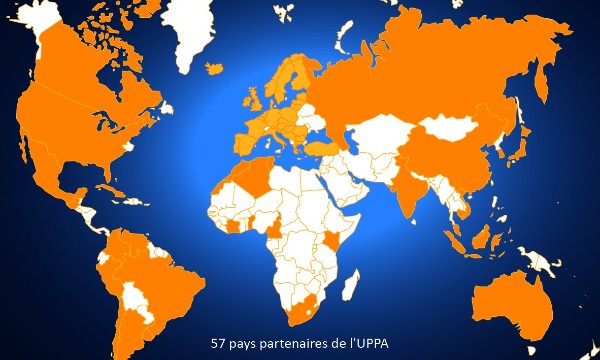The University is internationally recognised for the excellence of its training and research laboratories

Cross-border cooperation, partnerships with prestigious foreign universities, international chairs, masters courses in English... Small in size, the University of Pau and the Pays de l'Adour is gradually becoming a major university recognised beyond its borders for the excellence of its courses and research laboratories.
Some signs are not deceiving. Last year, within the framework of the ''Erasmus +'' programme, more than 250 students and 40 staff from the University of Pau and the Pays de l'Adour (UPPA) left to study or teach in a European Union country. At the same time, 102 European students decided to continue their studies at UPPA. Erasmus +'' is only the tip of the iceberg.
Due to its strategic geographical position, UPPA has already maintained privileged relations with the University of Zaragoza (Aragon), the University of the Basque Country (Euskadi) and the Public University of Navarre for many years, both in the field of teaching and research. Cross-border double degrees and joint thesis supervision have long been commonplace. What is new is that UPPA now has a much wider reach.
Partnerships in Europe
On 6 November 2020, the university reached a new milestone with the award of the "European Universities" label, one of the Union's flagship initiatives aimed at building a European education and research area. To achieve this major step forward, UPPA has joined forces with five other universities - in Italy, Spain, Portugal and Romania - in an alliance called UNITA. Focusing on cultural heritage, renewable energies and the circular economy, UNITA will give rise to an inter-university campus in the future, allowing students to live in a multilingual environment and to build flexible curricula within the six universities.
« Our desire to intensify our links abroad, to strengthen our partnerships by relying on our areas of excellence to gain visibility has enabled us in recent years to considerably strengthen our international attractiveness», says Mohamed Amara, President of UPPA. The opening of fifteen international masters courses since 2018, taught exclusively in English, bears witness to this ambition to welcome the best talent, wherever they come from. And the figures speak for themselves: the university now has 15% of foreign students from five continents, three-quarters of whom come from outside Europe.
Partnerships around the world
The UPPA's international relations department spares no effort to establish new collaborations around the world, particularly in the fields of energy and the environment. Partnerships and cooperation agreements are regularly signed with prestigious universities. They promote the mobility of students and teacher-researchers and open the door to ambitious research projects. The UPPA focuses more specifically on five target universities: the Federal University of Rio de Janeiro (Brazil), the University of Seville (Spain), Sichuan University (China), Northwestern University (United States) and the University of California at Berkeley (United States).
« These are priority establishments with which UPPA researchers already maintain relations,» explains Charlotte Tavernier, international relations project manager. « The aim is to build on existing links to strengthen or develop new partnerships, in the interests of both students and researchers. »


